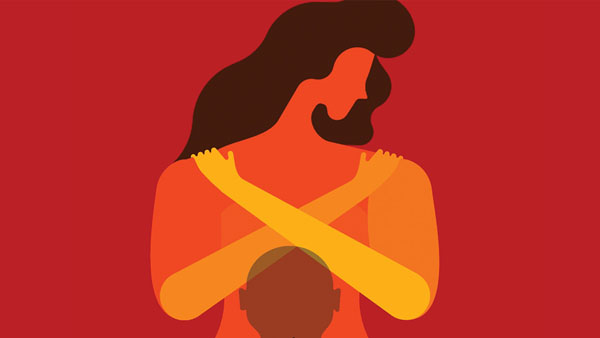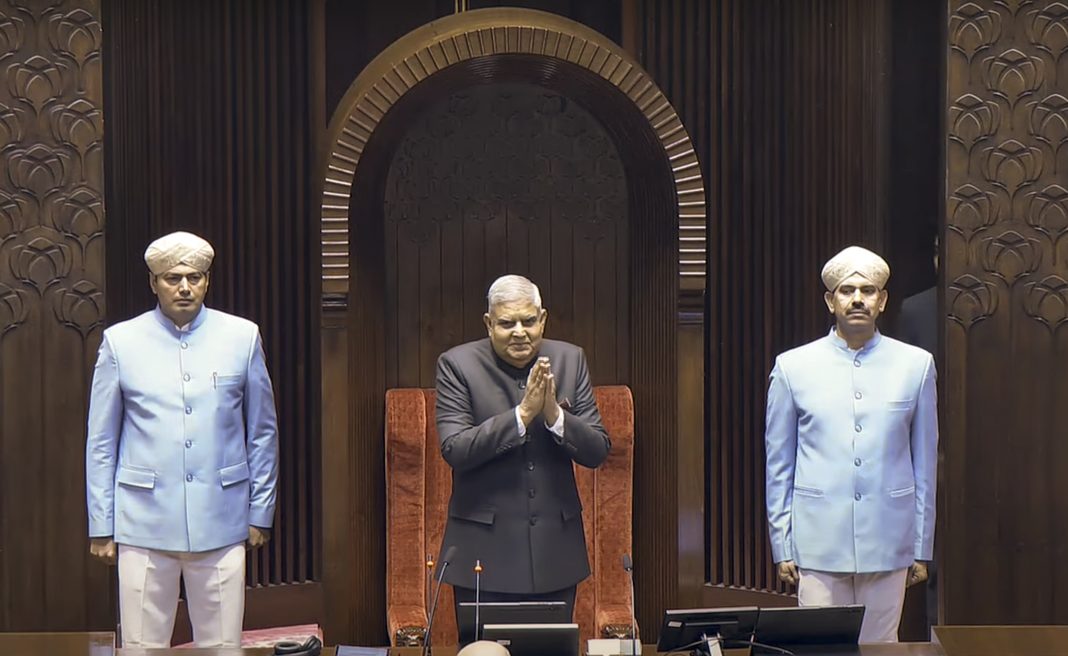By Dipak Kurmi
The International Day for the Elimination of Violence Against Women, observed annually on November 25, stands as a solemn reminder of the enduring violence faced by women and girls across the globe. Established by the UN General Assembly in 2000 through resolution 54/134, this day was created to raise awareness about the scourge of violence against women and to call for collective action to end it. The UN recognizes that violence against women and girls (VAWG) remains “largely unreported due to impunity, silence, stigma, and shame surrounding it.” Despite decades of global efforts to address this issue, VAWG continues to impede the realization of women’s and girls’ human rights and stands as one of the most egregious barriers to achieving equality, peace, and development.
The statistics surrounding violence against women are both staggering and heartbreaking. On average, every day, 140 women and girls are killed by someone in their own family. One in three women globally experiences physical or sexual violence in their lifetime. The magnitude of the problem is not confined to any specific country, culture, or region. It is a global crisis, a persistent violation of human rights, and one that no community is untouched by. As conflicts, climate change, and economic crises unfold across the world, gendered violence escalates. Sexual violence is used as a weapon of war in many conflict zones, while online platforms become breeding grounds for misogyny, harassment, and abuse.
Further complicating the situation is a growing backlash against the progress made on women’s rights. Legal protections for women are being rolled back in some parts of the world, human rights defenders are targeted and harassed, and survivors of violence often face immense barriers to justice and support. The UN’s initiatives such as the Spotlight Initiative and the UNiTE by 2030 to End Violence Against Women campaign call on governments, organizations, and individuals worldwide to unite in the fight to end this epidemic. Despite almost 30 years since the Beijing Declaration and Platform for Action set the ambitious goal to eliminate violence against women, the dream of a violence-free society for women remains largely unfulfilled. The question now is not just about raising awareness, but about translating awareness into real, urgent action.
Why the Dream of a Violence-Free Society Remains Unfulfilled
While there has been progress in acknowledging violence against women as a violation of human rights, the dream of a violence-free society for women remains a distant goal, and this is especially true in regions like India and Assam. The persistence of gender-based violence can be attributed to several systemic, cultural, and legal challenges that continue to perpetuate this human rights crisis.
At a global level, eliminating violence against women involves more than changing laws. It requires dismantling deeply entrenched patriarchal structures that continue to normalize and justify violence against women. In many societies, violence against women is still seen as a private matter rather than a public crime. Misogynistic attitudes, harmful traditional practices, and rigid gender roles continue to foster environments where violence is either excused or ignored. These attitudes are often passed down through generations, making the challenge of combating them all the more daunting.
In many regions, the failure of the legal system to provide timely justice and adequate support for survivors is a critical barrier. Perpetrators of violence often enjoy impunity due to slow judicial processes, corruption, and deeply ingrained societal biases. Survivors, on the other hand, face significant hurdles in accessing support, including shelter homes, legal aid, and psychological counseling. The absence of strong enforcement mechanisms for existing laws only exacerbates the problem, fostering a culture of silence and inaction.
Additionally, the stigma associated with being a victim of violence further silences women and girls. The societal shame imposed on survivors often discourages them from coming forward to report abuse, leading to a cycle where violence remains hidden, and perpetrators remain unpunished. This silence also enables the normalization of violence, allowing it to persist unchecked.
India’s Struggle with Gender-Based Violence
India presents a stark example of how cultural, societal, and systemic challenges continue to undermine efforts to eradicate violence against women. Despite strong constitutional guarantees of gender equality and a wide array of laws intended to protect women from violence, India continues to witness widespread gendered violence. Crimes such as domestic violence, sexual assault, honor killings, and dowry-related harassment remain endemic, despite being well-documented and legislated against.
High-profile cases of rape and assault frequently attract media attention, but the majority of incidents go unreported, particularly in rural areas where patriarchal norms are more rigid and societal pressure to remain silent is stronger. According to the National Crime Records Bureau (NCRB), crimes against women in India have been steadily rising, signaling systemic failures in law enforcement and a broader societal disregard for women’s rights.
The slow pace of justice, the backlog of cases, and the prevalence of corruption in the legal system further exacerbate the problem. In some cases, survivors face backlash for speaking out, while perpetrators often evade accountability. Moreover, the lack of effective victim support services—such as legal aid, safe shelters, and counseling—often leads to re-traumatization and despair for survivors, discouraging many from seeking justice.
Assam’s Gendered Violence Crisis
Assam, a state in India, faces its own unique challenges when it comes to addressing violence against women. Like the rest of the country, Assam is not immune to high rates of gender-based violence. Domestic violence, human trafficking, and practices like witch-hunting are prevalent in the region. The intersectionality of violence in Assam—where women from marginalized groups, indigenous communities, and tea garden workers face compounded vulnerabilities—requires a tailored and nuanced approach to addressing gendered violence.
While the state has introduced progressive policies, such as the Orunodoi scheme and the Swa-Nirbhar Naari initiative, structural and cultural barriers hinder their effective implementation. For example, women from indigenous communities and those living in economically disadvantaged areas continue to face obstacles in accessing justice and support. In many rural areas, women suffer under the dual pressures of economic hardship and entrenched patriarchal norms, which discourage them from speaking out against violence.
Human trafficking remains a significant issue in Assam, with women and girls from marginalized communities being trafficked for sexual exploitation, forced labor, and domestic servitude. The state’s vulnerability to trafficking is compounded by its geographical location and socio-economic inequalities, creating an environment where women and girls are at greater risk of exploitation.
Witch-hunting, a practice rooted in superstition and violence against women, continues to persist in rural Assam despite laws banning it. The lack of awareness, weak enforcement of legal protections, and entrenched superstitions all contribute to the ongoing prevalence of witch-hunting, leading to the victimization and, in some cases, the deaths of women accused of witchcraft.
The Path Forward: Moving Beyond Awareness
Addressing the crisis of violence against women and girls requires urgent and sustained action on multiple fronts. First and foremost, the legal framework must be strengthened and more effectively enforced. Laws protecting women must be rigorously implemented, with a focus on fast-tracking cases of violence, ensuring accountability for perpetrators, and prioritizing survivor-centric justice.
However, legal measures alone will not suffice. A broader societal shift is needed to challenge patriarchal norms and harmful gender stereotypes. Education and awareness campaigns that target communities, schools, and workplaces are crucial for shifting attitudes and behaviors. These campaigns must promote gender equality, respect for women’s rights, and a rejection of violence as a means of resolving conflict.
Empowering women economically and socially is another vital step toward ending gender-based violence. Providing women with access to education, skill development, and economic opportunities can help break the cycle of dependency and violence. Programs such as Assam’s microfinance schemes and skill-building initiatives can play a pivotal role in enhancing women’s agency and independence.
Moreover, expanding support systems for survivors is essential. This includes providing access to safe shelters, legal assistance, mental health counseling, and rehabilitation programs. Ensuring that these services are available in rural and marginalized communities is crucial to enabling women to seek help when they need it most.
Finally, fostering collaboration between governments, NGOs, and international organizations is necessary to combat this epidemic on a global scale. Initiatives like the UNiTE by 2030 campaign demonstrate the power of collective action in raising awareness, mobilizing resources, and advocating for women’s rights.
The International Day for the Elimination of Violence Against Women reminds us of the urgent need to address a crisis that affects millions of women and girls worldwide. For countries like India and regions like Assam, achieving a violence-free society requires confronting deep-rooted cultural, societal, and systemic challenges. By strengthening legal frameworks, empowering women, and fostering societal change, we can move closer to realizing a future where women and girls live free from fear, with dignity and equal opportunities. The time to act is now—violence against women cannot be allowed to persist any longer.
(the writer can be reached at dipakkurmiglpltd@gmail.com)




